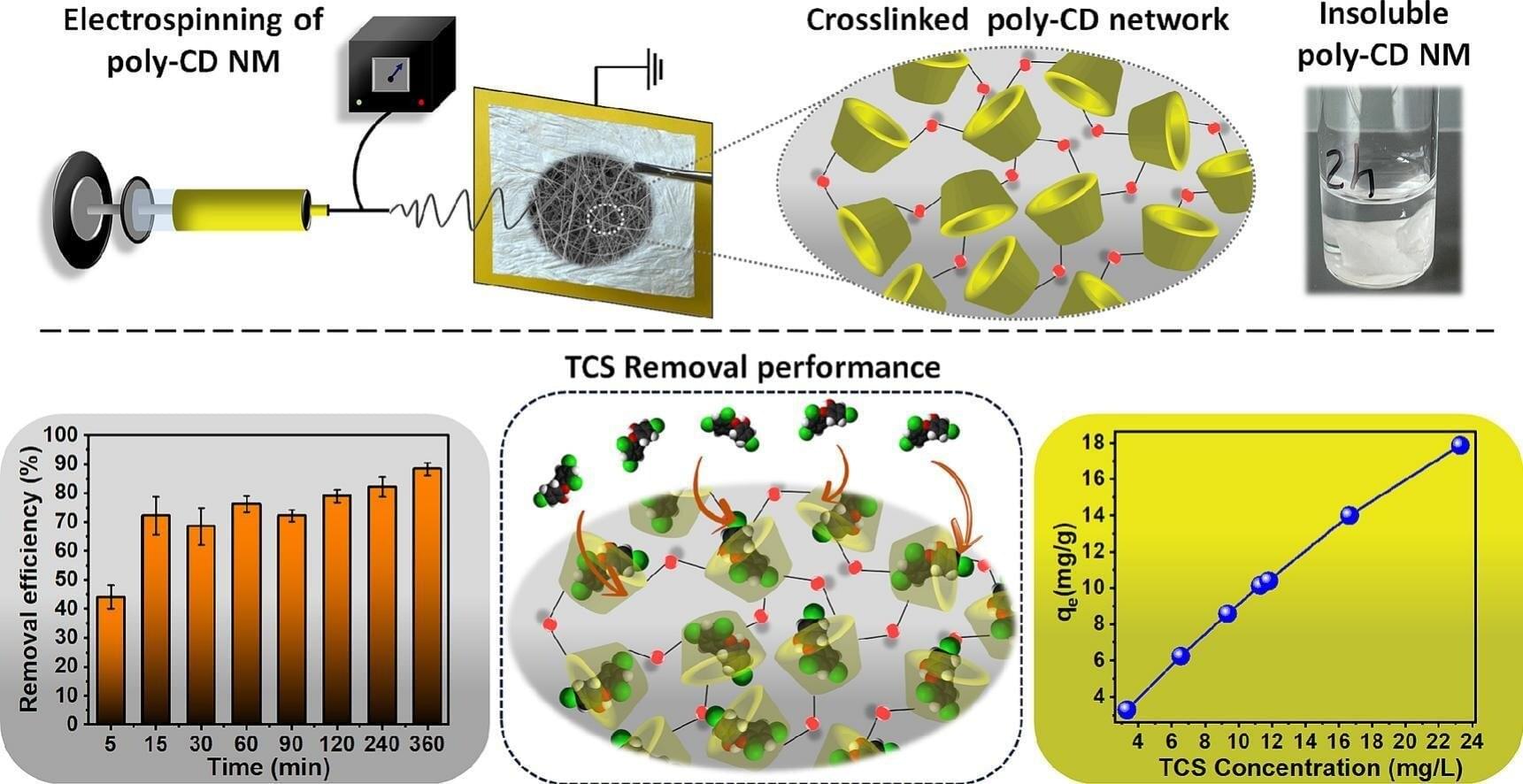The antimicrobial triclosan is widely used in personal hygiene products, textiles and plastics, but when it enters the environment via wastewater, it poses a significant threat to aquatic organisms.
A Cornell research group has developed a cyclodextrin-based fibrous membrane that in lab testing removed approximately 90% of triclosan from water. Their washable and reusable nanofiber material, fabricated via electrospinning—a process that uses an electric field to draw ultra-thin fibers from a liquid—also effectively removed other micropollutants.
“The electrospinning produces a very thin fiber, less than 1 micron in diameter (a human hair is approximately 75 microns), which gives us high surface area and excellent adsorption,” said Mahmoud Aboelkheir, doctoral student in human centered design and lead author of the work.
